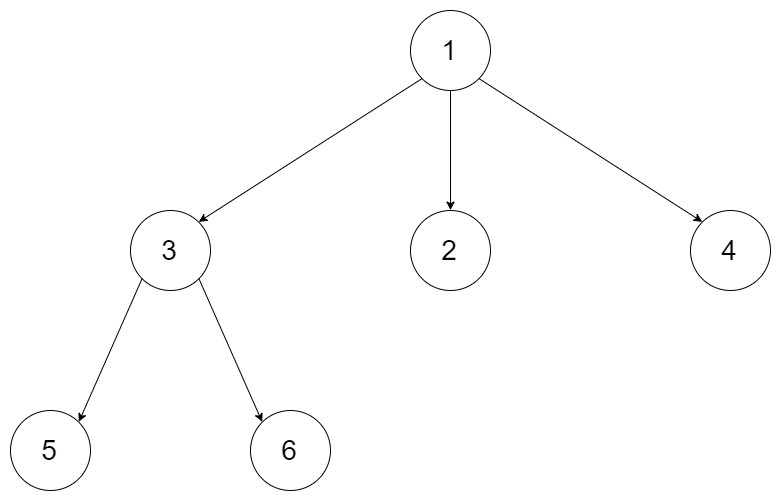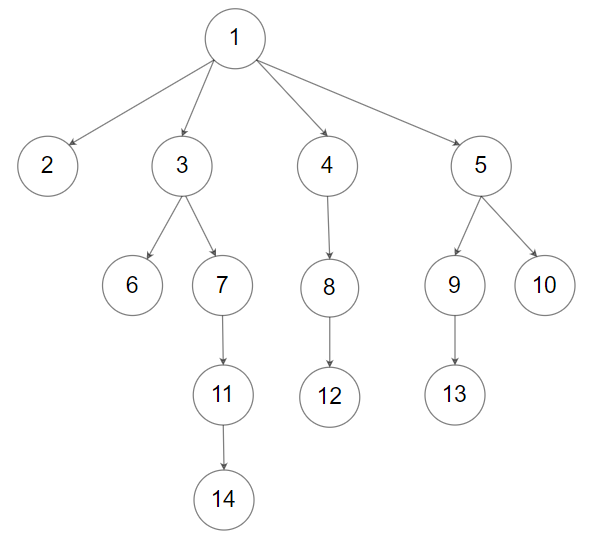[LeetCode] 590. N-ary Tree Postorder Traversal
Given the root of an n-ary tree, return the postorder traversal of its nodes' values.
Nary-Tree input serialization is represented in their level order traversal. Each group of children is separated by the null value (See examples)
Example 1:

Input: root = [1,null,3,2,4,null,5,6]
Output: [5,6,3,2,4,1]
Example 2:

Input: root = [1,null,2,3,4,5,null,null,6,7,null,8,null,9,10,null,null,11,null,12,null,13,null,null,14]
Output: [2,6,14,11,7,3,12,8,4,13,9,10,5,1]
Constraints:
The number of nodes in the tree is in the range [0, 104].
0 <= Node.val <= 104
The height of the n-ary tree is less than or equal to 1000.
Follow up: Recursive solution is trivial, could you do it iteratively?
N 叉树的后序遍历。
给定一个 n 叉树的根节点 root ,返回 其节点值的 后序遍历 。
n 叉树 在输入中按层序遍历进行序列化表示,每组子节点由空值 null 分隔(请参见示例)。
思路
题目的 followup 依然是问是否能用迭代的做法实现。我这里把迭代和递归的做法都练习了一下。
复杂度
迭代和递归的做法复杂度一样
时间O(n)
空间O(n)
迭代代码
Java实现
class Solution {
public List<Integer> postorder(Node root) {
List<Integer> res = new ArrayList<>();
// corner case
if (root == null) {
return res;
}
// normal case
Stack<Node> stack = new Stack<>();
stack.push(root);
while (!stack.isEmpty()) {
Node cur = stack.pop();
res.add(0, cur.val);
if (cur.children != null) {
for (Node child : cur.children) {
stack.push(child);
}
}
}
return res;
}
}
递归代码
Java实现
class Solution {
public List<Integer> postorder(Node root) {
List<Integer> res = new ArrayList<>();
// corner case
if (root == null) {
return res;
}
helper(res, root);
return res;
}
private void helper(List<Integer> res, Node root) {
if (root == null) {
return;
}
for (Node child : root.children) {
helper(res, child);
}
res.add(root.val);
}
}


 浙公网安备 33010602011771号
浙公网安备 33010602011771号